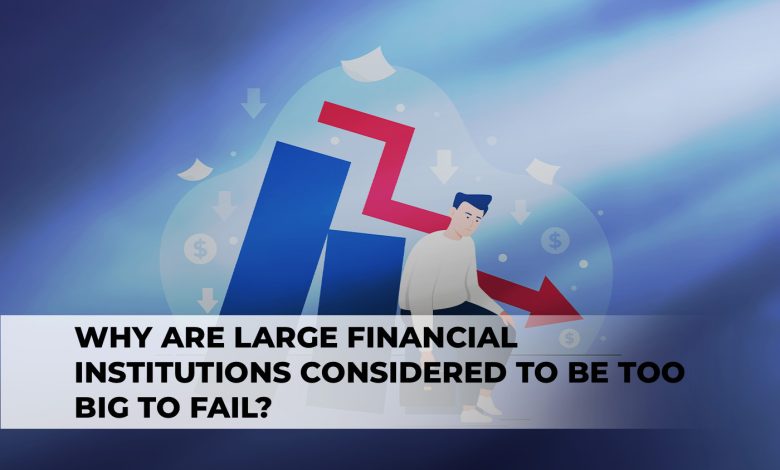
Large financial institutions are often considered to be “too big to fail” due to the potential risks they pose to the financial system if they were to collapse. These institutions have vast amounts of assets and liabilities and their failure could result in a significant impact on the economy. In the event of a failure the impact could extend beyond the institution itself and have severe consequences for other institutions and the economy as a whole.
The problem with these institutions is that their size and complexity make it difficult to identify and manage the risks they face. Moreover they have access to cheap funding which encourages reckless lending and investing creating an environment where risks are amplified. This behavior can lead to highly-leveraged positions making them vulnerable to market downturns.
Too big to fail institutions also present a moral hazard problem. Knowing that they won’t be allowed to fail these institutions have less incentive to manage risk properly as they believe the government will bail them out if things go wrong. This creates a culture of excessive risk-taking ultimately leading to a higher likelihood of insolvency.
In conclusion the size and complexity of large financial institutions create significant problems for the financial system. The risks and challenges involved in managing such institutions mean that they are inherently more prone to failure and their failure can have far-reaching consequences. Greater regulatory oversight and transparency are necessary to ensure that these institutions are held accountable for their actions and to prevent future financial crises.

What Is The Too Big To Fail Argument?
The Too Big To Fail argument is a concept that refers to the idea that some financial institutions or companies are so large that their failure would have serious and catastrophic consequences for the economy or financial system. This argument is often used to justify the government support and bailouts of large institutions during times of crisis.
The argument is based on the idea that the failure of these institutions could have ripple effects that could impact other financial institutions their customers and the broader economy as a whole. In other words the failure of one large institution could cause a domino effect that would lead to the collapse of multiple institutions and a potential economic depression.
The Too Big To Fail argument is often criticized for creating moral hazard and incentivizing large institutions to take excessive risks knowing that they will be bailed out if necessary. In addition it is argued that the government support of large institutions creates an uneven playing field and disadvantages small institutions that do not have the same level of government support.
Despite these criticisms the Too Big To Fail argument continues to be used as justification for government intervention in times of crisis. However many experts argue that more effective regulatory measures can be put in place to prevent institutions from becoming Too Big To Fail in the first place.







